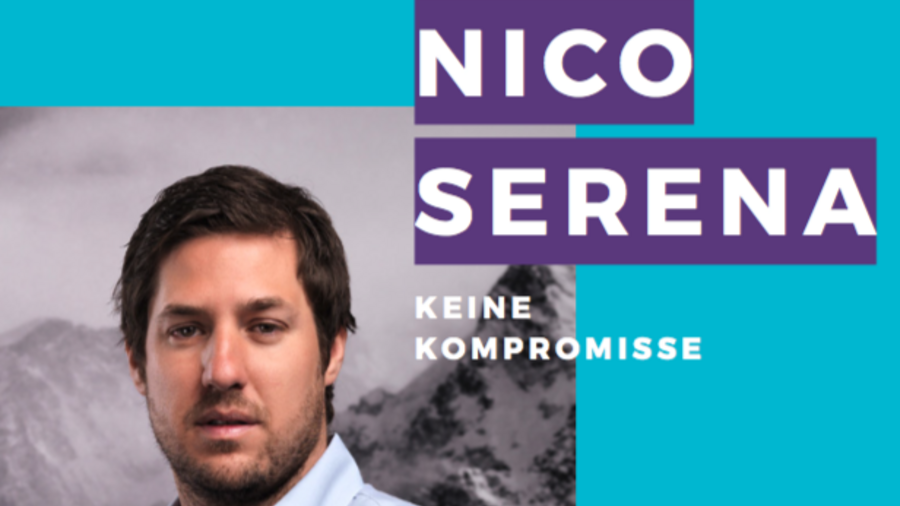Munich, end January: the sports industry congregates at the «ISPO» trade show, the annual rendezvous of innovation. Standing at his counter in the centre hall, Kjus's CEO Nico Serena is explaining the «Freelite» jacket to a journalist: Unlike any other ski jacket, this one is fully knitted. That way, it can stretch in all directions, but will still provide insulation against cold, wind and water.
«How did you do this?» queries the perplexed American journalist. In his view of the world, innovations stem from multinationals. It is, admittedly, highly unusual that a small company like Kjus launches an innovation that makes headlines in the specialised media around the globe. Changing things and having a go at achieving the impossible is part of Kjus's DNA.
Back in 2000, Norwegian Olympic champion Lasse Kjus and Nico's father Didi Serena had been wondering why there was so little functional apparel for skiing that deserved the name. True, technical garments existed – but, in terms of looks, they tended to be below par. The highend ski fashion available at the time looked good, but its functionality did not satisfy the demanding user. The skiing star and the sports entrepreneur decided to change that: Kjus, the sports brand, was born.
«Today, we have a reputation for being true drivers of innovation in our industry,» says Nico Serena. That opens up opportunities to collaborate with the world's best suppliers on new developments, even though Kjus can never sign up for the quantities that large corporations will.
«Freelite is the ski sweater of the 21st century.»
«Freelite proved a tough nut to crack. We couldn’t even find the appropriate machines anywhere for what we were trying to accomplish,» Nico recalls. «They first had to be adapted and converted to our purpose.» Next, the company needed expert suppliers that could apply a membrane to the ultra ne knitwear in such a manner that the jacket would retain its stretchability.
«We made hundreds of trials, we stitched and glued prototypes and pilot productions and tested them to the point of destruction. After four years of hard work, we had finally gotten to where we wanted.» The result is utterly convincing: the patented Freelite technology was one of the most talked about topics at last year's ISPO. «Freelite is the ski sweater of the 21st century,» sums up an enthused Nico Serena.
Ski and snow have shaped Kjus's genetic make-up. Co-founder and eponym Lasse Kjus is still a driving force in their endeavour to make the best possible sports apparel. «Lasse will give each prototype that he's given to test a great deal of hard wear. He just wants to make sure that whatever carries his name will work properly.»
«Technology is just one side of innovation.»
Ski apparel remains Kjus's core business. That is where the company invests most of its R&D time and money. In 2013, a golfers collection followed the launch of its first leisurewear collection in 2008. «Golfers, neither, are willing to compromise on quality and functionality. That plays to our advantage.» Golf and Kjus make a good fit: No less than 80 out of the top 100 American pro shops carry the Kjus golfers collection.
Choosing the right points of sale is of prime importance to Nico Serena. «The only place where you can touch, feel, and experience our products is in a shop.» Besides, specialised retailers are a valuable source of feedback: «As they have many repeat customers, partners like Skiservice give us essential pointers as to how well the garments perform in everyday use,» he emphasises.
«Technology is just one of the two sides of innovation: Without a focus on the customer, we would be heading in the wrong direction. It has never been more important to listen to what the client has to say.»
This piece by Christian Gartmann was published in Skiservice Magazine 2018. it was written for Skiservice Corvatsch.

